5 Ways to be more eco-friendly in the kitchen
We all try to do our bit for the planet, including how we use our kitchens.
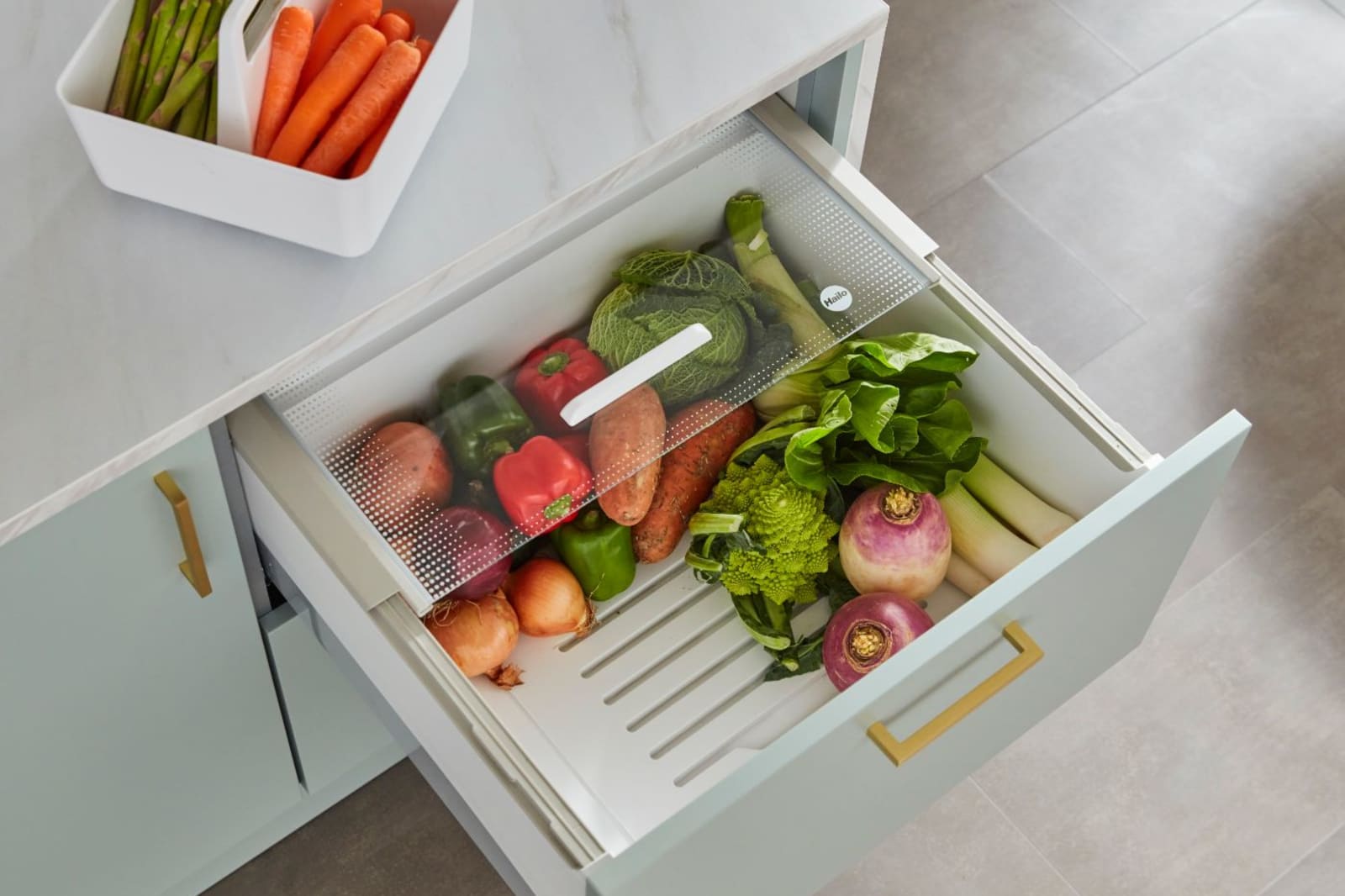
As we cook, clean and entertain in the kitchen, this means it’s the place in the home that naturally produces the most waste. And according to leading global sustainability charity, WRAP, food surplus and waste is estimated at 3.6 million tonnes per year in the UK.
To help reduce your contribution to landfill, we’ve provided these eight easy steps you can follow to be eco-friendlier and more sustainable in your kitchen.


Opt for biodegradable tools and utensils
Even non-single-use plastics will eventually end up in landfills and add unnecessary waste to the earth.
That doesn’t mean you have to immediately throw away every plastic item in your kitchen, as this will only create more waste. But when an item has come to the end of its working life, see if you can find a replacement that’s made from a more sustainable material.
Metal, glass and wood are all durable and hygienic alternatives to plastic. Stainless steel tools not only last a long time and are widely recycled, but they’re aesthetically versatile, and will complement a wide variety of kitchen styles.
Create a plastic-free pantry by storing long-life items like pasta, flour and lentils in glass jars. Not only is this better for the environment, but it makes them more accessible and they look a lot more stylish than plastic containers, too.
You might also want to consider taking reusable bags to the supermarket for your fruit and veg.
Recycle and compost
A lot of food containers can be recycled instead of being sent to landfills. Having a separate recycling bin with compartments for different materials makes categorising and disposing of your waste a lot easier.
Different regions have different rules when it comes to what can and cannot be recycled. You can find out more information on your local authority’s website.
Another type of waste that you’ll have to deal with often in your kitchen is food waste. Some of your food waste can be transformed into compost, which is great if you have green fingers!
Even if there’s not a lot of space in or around your property, there’s still plenty of small space composting solutions that are cheap and easy to set up – so you’re sure to find one that works for you.
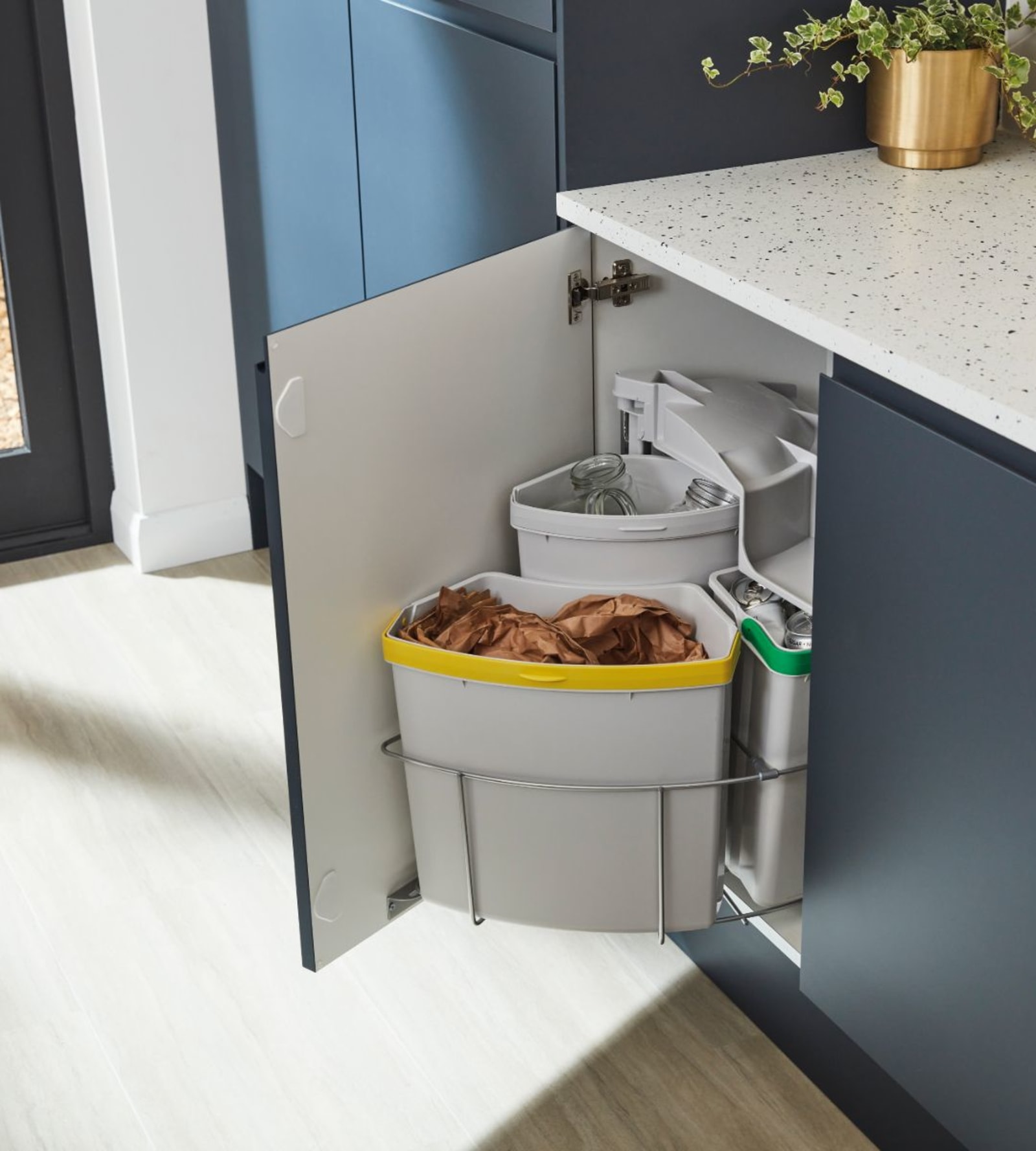
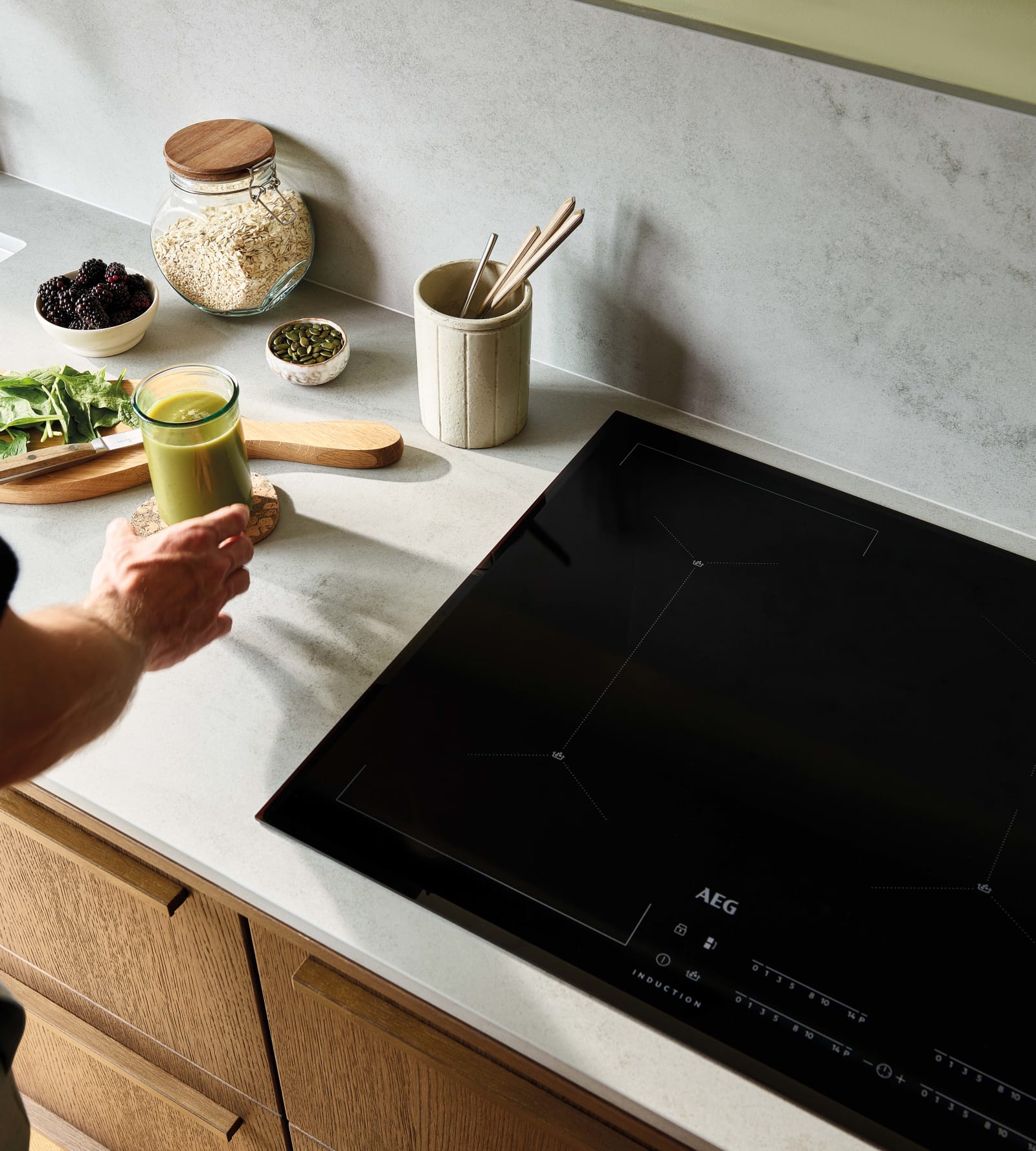
Choose energy-efficient appliances
Your washing machine, fridge, oven and hob can consume a lot of energy, so one way to reduce your carbon footprint is to choose more energy-efficient kitchen appliances.
When shopping for new appliances, make sure to compare their energy rating. The seven-step colour chart makes it easy to identify green appliances, with each appliance being awarded a rank from A-G (with A being the greenest).
AEG offer a range of appliances designed to save energy, including induction hobs that heat pans 30% more efficiently than gas, and rapidly cool when a pan isn’t detected on the surface.
Energy-efficient appliances can come with a higher upfront cost, but this is generally offset by the reduction in your electricity bills – helping you save money as well as reducing your impact on the environment.
Buy reusable cloths and kitchen towels
Paper towels usually end up in the bin after only one use, but there are more eco-friendly alternatives for wiping up spills.
Microfibre cloths and kitchen towels can be used repeatedly with regular washing and will last a long time. Cloths made from natural fibres are compostable once they’re no longer useable – helping to cut down on household waste even further.
If you’re tackling tough stains that require something more abrasive, you might want to consider bamboo paper towels – with both disposable and reusable options available.
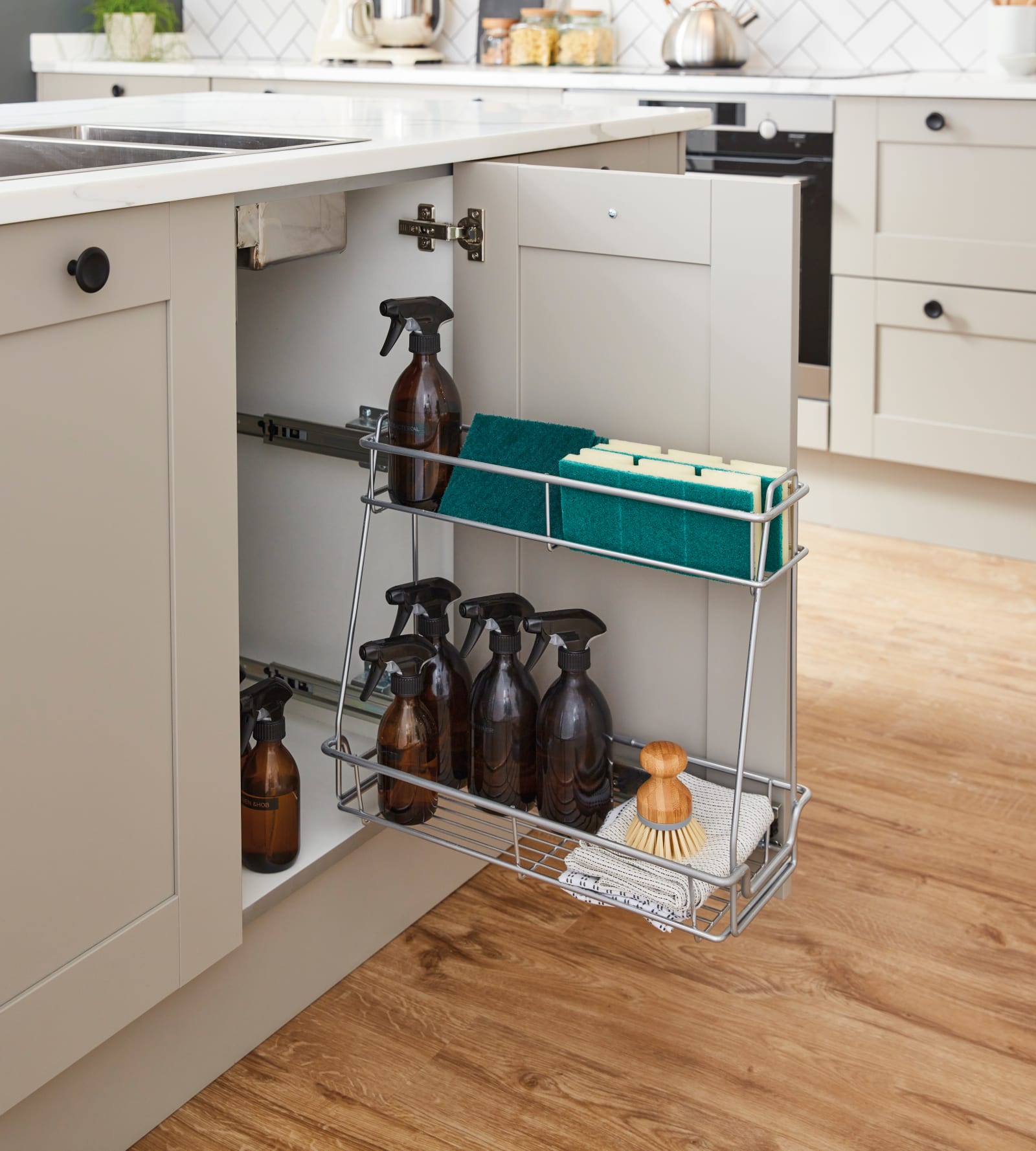
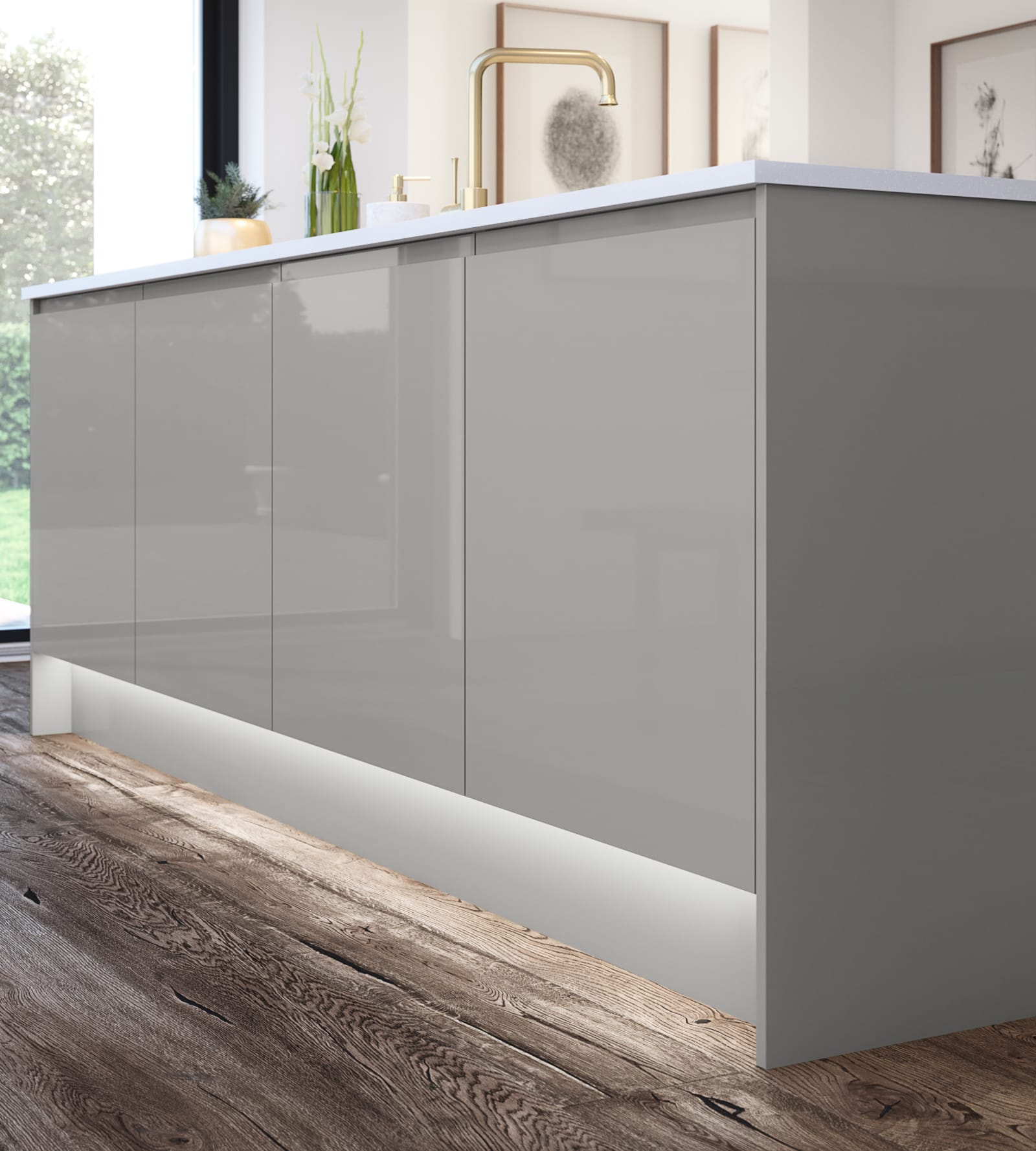
Switch to LED lighting
A simple way to make your kitchen more sustainable is to replace your old lightbulbs with energy-efficient LED lighting.
LEDs use less energy while giving you the same level of brightness (or even greater), making them a better alternative to older forms of kitchen lighting.
They’re excellent on a long-term basis and won’t need replacing often, which saves you the hassle of having to replace the bulb.
Making simple changes like these to our daily routine can not only help us be kinder to the planet but will save you time and money – allowing you to focus on what really matters.
Want to delve deeper into the lifespan of kitchen appliances? Read our latest report here. Or learn about Magnet’s sustainability mission here.



























